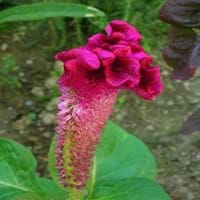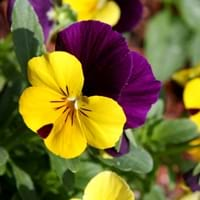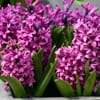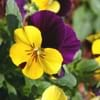Color
Pink, Purple, Red
Blue, Orange, Pink, Purple, Red, White, Yellow
Color Meaning
Pink - Sensitivity and Love, Purple - Elegance and Pride, Red - Courage, Desire and Love
Blue - Peace and Serenity, Orange - Satisfaction and Passion, Pink - Sensitivity and Love, Purple - Elegance and Pride, Red - Courage, Desire and Love, White - Purity and Innocence, Yellow - Happiness and Friendship
Line
Not Available
Not Available
Silhouette
Not Available
Not Available
Blossom Texture
Not Available
Not Available
Form
Not Available
Not Available
Sunlight
Full Sun
Full Sun
Watering
Diligently
Diligently
Type of Soil
Loamy
Well-drained
Essential Fertilizers
Lime stone, Sulphur
Lime stone
Common Pests and Diseases
List of Pests
Unknown
Aphids, Slugs, Snails, Spider Mites
List of Diseases
Unknown
Bacterial leaf spot or blast, blight, Crown gall rot, Gray Molds, Root Rot
Bloom Time
All Summer Season, Fall Season, Spring Season
All Summer Season, Fall Season, Spring Season, Winter Season
Origin
Africa, Asia, Europe, North America
Asia, Europe
Interesting Facts of
- The Rose comes in various colors, although a "black rose " is not literally black but a dark red.
- A single rose suggests utmost devotion while two rose entwined together says "Marry me".
- The flower name Pansy has come from French word 'pensee' and that means thought or remembrance.
- The flower resembles to human face.
Lifespan
Annuals - complete its full life cycle in one growing season
Biennials - completes its life cycle in two years
Uses
Not Available
Not Available
Health Benefits
Unknown
Best remedy for Cough & Cold, Good for liver and gallbladder, improves the functioning of the lungs, kidneys, and stomach, Used for sinus pain, hay fever and headache
Medicinal Uses
Unknown
Acts as an anti-inflammatory, It has anti-bacterial and anti-fungal properties, It has anti-septic properties
Culinary Uses
Unknown
Included in wines and cocktails, Used as flavor food in deserts and ice creams, Used in salads, soups and sandwiches
Cosmetic Uses
Best for Healing, Unknown, Used after facial and cleansing
Best for Dry sensitive skin, Best for Healing, Softens skin, Used in Perfumes
Occasional Uses
Anniversary, Valentine's Day, Wedding
Anniversary, Decoration
Scientific Name
Amaranthus
Viola tricolor subsp. tricolor
Sub kingdom
Tracheobionta
Tracheobionta
Super Division
Spermatophyte
Spermatophyte
Division
Magnoliophyta
Magnoliophyta
Order
Caryophyllales
Violales
Class
Magnoliopsida
Magnoliopsida
Family
Amaranthaceae
Violaceae
Sub Family
Amaranthoideae
NA
Genus
Not Available
Not Available
Number of Species
Not Available
Not Available
More about Amaranth and Pansy Facts and color
You must be curious to know more about Amaranth and Pansy facts and color. flowers.comparespecies.com will let you know all the Interesting Facts about Amaranth and Pansy. Amaranth comes in Pink, Purple, Red colors whereas Pansy flowers are with Blue, Orange, Pink, Purple, Red, White, Yellow colors. Other Amaranth and Pansy facts will definitely amuse you.
Amaranth and Pansy growing conditions
Absolute growing condition is the only key to keep plants in good health and in good shape. Let’s learn about essential Amaranth and Pansy growing conditions. Amaranth requires Full Sun and Diligently watering with 5.50 of Loamy soil. Pansy needs Full Sun and Diligently watering with 5.40 of Well-drained soil. Get other Amaranth and Pansy facts in the sections below.
Amaranth and Pansy Facts
Want to know about Amaranth and Pansy facts? Get all the Amaranth and Pansy facts here.
Amaranth and Pansy Classification
After knowing about various Amaranth and Pansy facts, let's study their classification. Based on genetic and physical features, Amaranth and Pansy classification starts with knowing their scientific name. The scientific name of Amaranth and Pansy is Amaranthus and Viola tricolor subsp. tricolor respectively. Amaranth belongs to Amaranthaceae family whereas Pansy falls under Violaceae family. Also check out Flowers by Color so as to plant colorful aroma in the garden.





